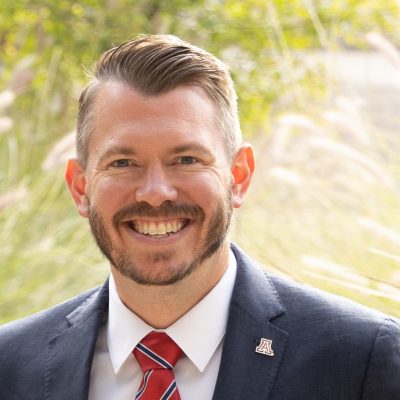8 A Passion for the Past: Lifelong Learning as a Guide for Navigating the World
Robert Stephan
Allow me to let you in on a little secret: school almost never, ever teaches you what you’re actually going to do in your job. This is strange considering you’ll have spent somewhere between one and three decades in school by the time your first career-oriented job comes around. Perhaps even stranger — this is exactly what will make you successful.
Let me tell you my own story. Currently, I’m a Professor in the Department of Religious Studies and Classics, where my research focuses on the economy of ancient Rome. Before I got my first job as a professor, however, I spent approximately 25 years in school: there was K-12, four years of college, a year studying languages, and a mere seven years of grad school. That’s more than half the expected lifespan of a citizen in Classical Athens or Ancient Rome. And guess what? After those 25 years of school, after two and a half decades of preparing to be a Roman archaeologist, my first job was…teaching freshman composition. No Caesar or Augustus, no Colosseum or Pantheon, no aqueducts or amphitheaters, just literature reviews, research-based writing strategies, and enough rhetorical analyses to make Aristotle himself jealous.
A few years after that, when I arrived on the cactus-crested campus of the UA, I thought: surely, this is where all that training pays off. Nope! I was given classes to teach that I had never even taken (much less taught), I had to learn the ins-and-outs of degree audit worksheets, and I discovered that I would be spending just as much time formatting assignments in arcane learning management software as I would be teaching in the classroom or researching in the library. But although my quarter-century of training seemed only tangentially related to what I was doing on a day-to-day basis, I found myself surprisingly prepared to succeed.
But how does 25 years of learning things that aren’t going to be your job actually prepare you to thrive in your career?
The answer is simple. Education — and especially general education — teaches you to learn. When I thought I was learning calculus, I was learning to learn. When I thought I was learning the Krebs cycle, I was learning to learn. When I thought I was learning the causes of the decline and fall of the Roman empire — that’s right! — I was learning to learn. As a result, I could step into a composition classroom and succeed, or master the enigma that is D2L, or really do anything I put my mind to because I had developed the capacity to learn.
Much of this “learning to learn” derives from the fact that courses that seem merely content-based are actually teaching you skills that are also useful far outside of that specific classroom context. Unless you want to be top dog on your trivia team, it’s not all that important to know when Caesar was assassinated (44 BC!) or who built the great pyramid at Giza (Khufu!) or where Sparta defeated Athens to end the Peloponnesian War (Aegospotami!). It’s not that facts are irrelevant; on the contrary, it’s crucial to have a firm grasp on factual material, but it’s what you’re able to do with that information that’s truly important. If you can leverage your understanding of Caesar to comment on the dynamics of modern geopolitics, or your knowledge of Khufu’s Great Pyramid to discuss large-scale labor systems, you will undoubtedly make a lasting impression on future employers regardless of your field. Likewise, if you can unpack the cultural complexities of the Hellenistic Near East, or the diverse ethnic interplay of Ptolemaic Egypt, you will be far better positioned to travel, experience, and understand today’s globalized world.
When I teach ancient history and archaeology, I spend lots of time talking through the skills students are learning, not just the facts. As it turns out, the skills you learn studying the ancient past are crucial for learning how to succeed in, say, the business world. You learn, for example, to construct macro-level models based on fragmentary information, just like economists do. You learn to read for biases and predispositions, which are crucial for those headed for a career in marketing. And you learn to disambiguate things like correlation and causation, which are integral to careers in finance. So even though you might not realize it at the time, your course on classical mythology might just be a crucial building block for your career in investment banking.
Perhaps most importantly, general education can create one of life’s most rewarding positive feedback loops. The more you learn about the world, the more you want to keep learning. It’s nearly impossible to stand in front of the Great Pyramid or the Colosseum or the Parthenon and not want to learn more about the cultures that produced such lasting legacies.
My personal life has been shaped by viewing the world as my classroom, conducive to both teaching and learning, and this lifelong education fosters my confidence to navigate an increasingly complex and rapidly changing environment. This desire to learn isn’t just useful for your career (although, I’ve tried to make the case that it is indeed useful for that too!); it also makes life more fascinating and fulfilling. Think about the people who you find most interesting to spend time with, and I’d bet those are people who have a natural curiosity about the world. The more we learn, the more we want to learn, and the more exciting life becomes. And a broad general education, where you gain a vast set of practical skills while investigating a profoundly diverse array of topics, is the launching point for that lifelong intellectual adventure.


